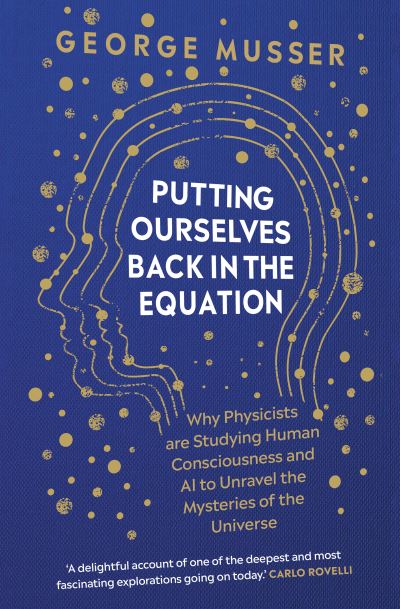
Distant galaxies, dark matter, black holes - elusive, incomprehensible and inhospitable - these are the building blocks of modern physics. But where do we fit in this picture?
'A delightful account of one of the deepest and most fascinating explorations going on today.' CARLO ROVELLI, AUTHOR OF WHITE HOLES
For centuries, we have separated mind from matter. While physicists have pursued a theory of 'everything' with single-minded purpose, the matter of the mind, of human consciousness, has been conveniently sidestepped and ignored - consigned to priests, philosophers and poets.
With the ambition of Stephen Hawking, Carlo Rovelli and Brian Cox, Putting Ourselves Back in the Equation sets out a bold new vision for theoretical physics, unrestricted by sleek equations and neat formulations. Combining cutting-edge neuroscience with the latest in quantum mechanics, acclaimed writer Musser offers a new interpretation of human consciousness. From bizarre cognitive phenomena, like lucid dreaming and self-taught synaesthesia, to the latest technological developments in AI, Musser asks: what can physics teach us about what it means to be human?
***
'The renowned science writer George Musser has taken on one of our time's greatest issues: AI, how it works, and what makes it so powerful. This masterfully written book shows a surprising connection with theoretical physics.' MAX TEGMARK, AUTHOR OF LIFE 3.0
'Musser is to be applauded for tackling both consciousness and the quantum realm... He joins a distinguished list of thinkers... Musser's book is readable and enthusiastic, packed with first-person anecdotes.' TLS
'In this captivating book, George Musser takes us on a fascinating tour of the modern, surprising connections scientists discover between the cosmos and our inner world of consciousness.' MARIO LIVIO, AUTHOR OF THE GOLDEN RATIO
| ISBN: | 9780861547197 |
| Publication date: | 9th November 2023 |
| Author: | George Musser |
| Publisher: | Oneworld an imprint of Oneworld Publications |
| Format: | Hardback |
| Pagination: | 336 pages |
| Genres: |
Neural networks and fuzzy systems Quantum computing and information Human–computer interaction Popular astronomy and space Theoretical and mathematical astronomy Cosmology and the universe Quantum physics (quantum mechanics and quantum field theory) Mathematical physics Philosophy of mathematics Popular Science Astronomy, space and time |